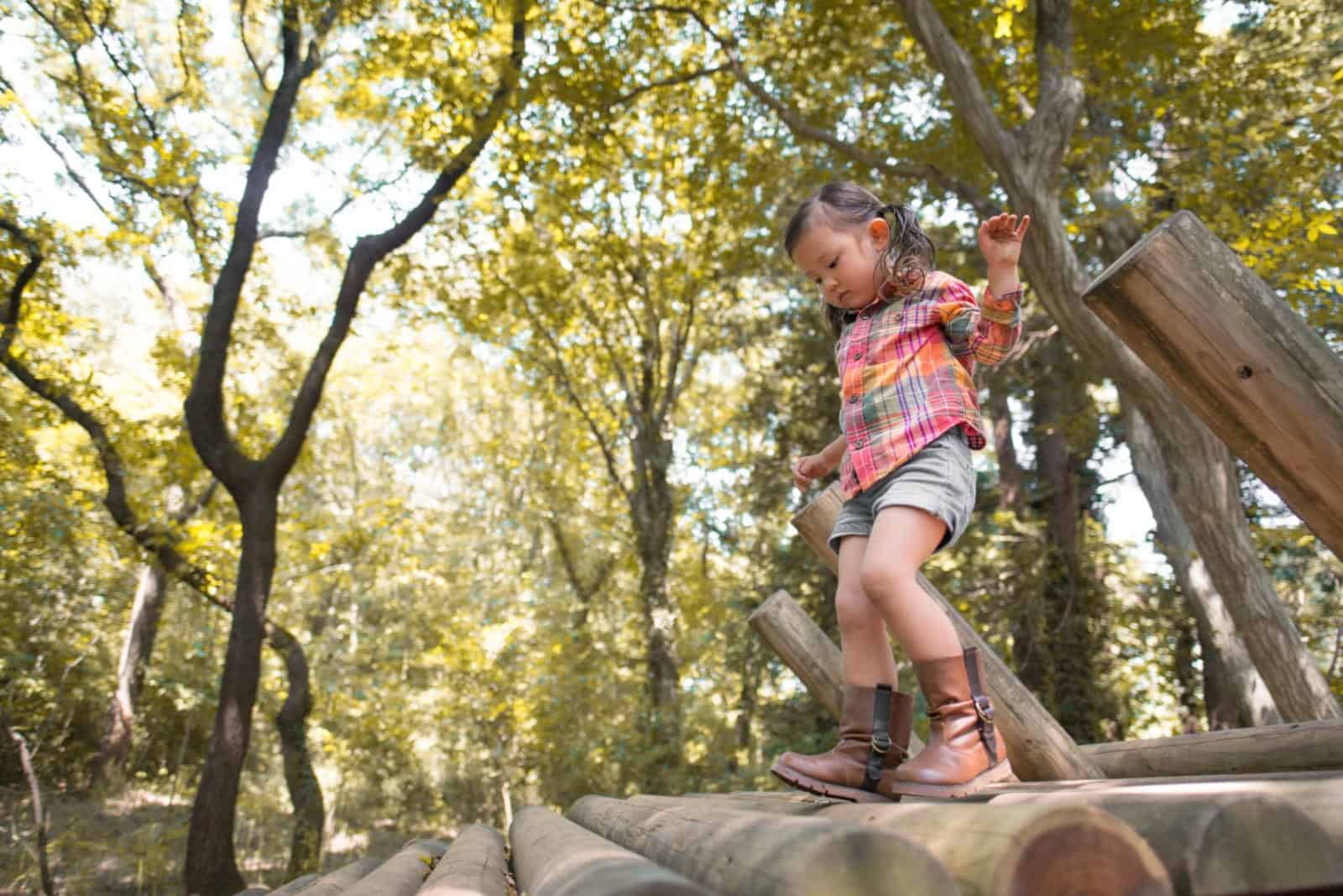
Should I go outside in the COVID-19 era?
Louise de Lannoy, PhD, Mariana Brussoni, PhD, Mark Tremblay, PhD
There are 162 supporters of this page.
Click here to endorse this page.
Name
Endorsement Type
Organization
Cindy Andrew
Individual
–
Danielle Astor
Individual
–
Salomé Aubert
Individual
–
Ava Ault
Individual
–
Hart Banack
Individual
–
ryan barfoot
Organization
Outdoor & Ecological Learning - School District 47 (BC)
Judith Bishop
Individual
–
Josee Bisson
Individual
–
Mary Blachut
Individual
–
Alessandro Bortolotti
Individual
–
Kobra Bouseh
Individual
–
Mariana Brussoni
Individual
–
Jessica Burke
Individual
–
Chantal Caissy
Organization
CPE Touchatouille
Pat Campbell
Individual
–
Dawn Carr
Individual
–
Jane Cawley
Individual
–
Chris Chambers
Individual
–
Jean-Philippe Chaput
Individual
–
Malin Christensson
Organization
The Forest Path
Diana Clements
Organization
Parry Sound Forest School
Z Crafts
Individual
–
Carolyn Crang
Individual
–
Lisa Crone
Organization
Roots Educational Solutions
Erika Cusimano
Individual
–
Donna Dalgleish
Individual
–
Louise de Lannoy
Individual
–
Iryna Demchenko
Individual
–
Genive Di Bernardo
Individual
–
Joe Doiron
Individual
–
Molly Driediger
Organization
Western University
Debbie Dudas
Individual
–
Mark Dudas
Individual
–
Victor Elderton
Organization
Pacific Foundation for Understanding Nature Society
Victor & Colleen Elderton
Individual
–
Heather Fig
Organization
Cambridge Farm and Forest School
Caroline Fisker
Individual
–
Jacob Flewelling
Individual
–
Stephanie Flood
Individual
–
Amanda Froehlich Chow
Individual
–
Carrie Froese
Organization
Inquire2Empower
Kate Frohlich
Individual
–
Emily Gemmell
Individual
–
frances Gibson
Individual
–
Whitney Glage
Organization
Tiny Forest Academy
Gary Goldfield
Individual
–
Iryna Guzar
Individual
–
Jennifer Hahn
Individual
–
Nevin Harper
Individual
–
Sandra Hartley
Individual
–
Andrew Harvey Harvey
Individual
–
Martine Hebert
Individual
–
Shannon Hodgins
Individual
–
Candy Holliesy
Individual
–
Alan Huber
Individual
–
Crystal Itterman
Individual
–
IAN JANSSEN
Individual
–
Melissa Johnson
Individual
–
Katarzyna Juraczko
Organization
Child Development Dayhomes
Francis Kangata
Individual
–
Erik Kavanagh
Individual
–
Donna Kaye
Individual
–
Angela Keller-Herzog
Individual
–
Jim Kelly
Individual
–
Kathleen Ketchum
Individual
–
Sara Kirk
Individual
–
patty kolesnichenko
Individual
–
Cathie Kryzanowski
Organization
Saskatchewan in motion
Devon Lagace
Organization
Bhi, LBHA
Amalie Lambert
Individual
–
Helene Larocque
Individual
Healthy4LifewithHelene.com (Wellness Coaching)
Richard Larouche
Individual
–
Amy Latimer
Individual
–
Rose LePage
Individual
–
April Link
Organization
Outer Coast Outfitters
Kerry Logan
Individual
–
Frederico Lopes
Individual
–
Juan Lopez-Taylor
Organization
Universidad de Guadalajara
Denise Lowe
Individual
–
Judy MacLeod Campbell
Individual
–
Tammy Marcus
Individual
–
Juno Mardon
Individual
–
Georgina Marucci
Individual
–
Kirsty Mason
Individual
–
Karen McKendry
Individual
–
Noah McManus
Individual
–
Robin McMillan
Individual
–
Sylvie Melsbach
Organization
Regroupement des centres de la petite enfance de la Montérégie
Susan Menchinton
Organization
Workshop Associates
Raktim Mitra
Individual
–
Gail Molenaar
Individual
–
Richard Monette
Organization
ActiveforLife.com
Stacey Mudie
Individual
–
Roy Mulligan
Individual
–
Tanya Murray
Individual
YRDSB
Michelle Nadler
Individual
–
Alex Parrington
Individual
–
Alynn Pessotto
Individual
–
Sonja Peters
Individual
–
Anne Pousette
Individual
–
Adrian Pye
Individual
–
Daniel Rainham
Individual
–
Lee Robert
Organization
Macoun Field Club
Gordon E Robertson
Individual
–
Bob Rogers
Individual
–
Nancy Schutts
Organization
FIND US OUTSIDE, INC
hina shamim
Individual
–
Janet Smale
Individual
–
Bryan Smith
Individual
–
gwynneth sobejko
Individual
–
Albi Sole
Organization
Outdoor Council of Canada
Daniel Stevens
Individual
–
Fred Stocker
Individual
–
Michael Stone
Individual
–
Michelle Stone
Individual
–
Chantal Tranchemontagne
Individual
–
Ben Tremblay
Individual
–
Mark Tremblay
Individual
–
Kim Tytler
Individual
–
Frederic Venne
Individual
–
Heather Vezina
Individual
–
Blair Voyvodic MD
Individual
–
Anders Wange Kjellsson
Organization
for Naturskolan in Lund, Sweden
Crystal Watson
Individual
–
Ron Weese
Organization
Activate Aurora
Jan White
Organization
Early Childhood Outdoors
Veronica Williams
Individual
–
Marnie Willis
Individual
–
Heather Wilson
Organization
Child and Nature Alliance of Canada
Devon Wright
Individual
–
Megan Zeni
Individual
–
| Name | Endorsement Type | Organization |
|---|---|---|
| Cindy Andrew | Individual | – |
| Danielle Astor | Individual | – |
| Salomé Aubert | Individual | – |
| Ava Ault | Individual | – |
| Hart Banack | Individual | – |
| ryan barfoot | Organization | Outdoor & Ecological Learning - School District 47 (BC) |
| Judith Bishop | Individual | – |
| Josee Bisson | Individual | – |
| Mary Blachut | Individual | – |
| Alessandro Bortolotti | Individual | – |
| Kobra Bouseh | Individual | – |
| Mariana Brussoni | Individual | – |
| Jessica Burke | Individual | – |
| Chantal Caissy | Organization | CPE Touchatouille |
| Pat Campbell | Individual | – |
| Dawn Carr | Individual | – |
| Jane Cawley | Individual | – |
| Chris Chambers | Individual | – |
| Jean-Philippe Chaput | Individual | – |
| Malin Christensson | Organization | The Forest Path |
| Diana Clements | Organization | Parry Sound Forest School |
| Z Crafts | Individual | – |
| Carolyn Crang | Individual | – |
| Lisa Crone | Organization | Roots Educational Solutions |
| Erika Cusimano | Individual | – |
| Donna Dalgleish | Individual | – |
| Louise de Lannoy | Individual | – |
| Iryna Demchenko | Individual | – |
| Genive Di Bernardo | Individual | – |
| Joe Doiron | Individual | – |
| Molly Driediger | Organization | Western University |
| Debbie Dudas | Individual | – |
| Mark Dudas | Individual | – |
| Victor Elderton | Organization | Pacific Foundation for Understanding Nature Society |
| Victor & Colleen Elderton | Individual | – |
| Heather Fig | Organization | Cambridge Farm and Forest School |
| Caroline Fisker | Individual | – |
| Jacob Flewelling | Individual | – |
| Stephanie Flood | Individual | – |
| Amanda Froehlich Chow | Individual | – |
| Carrie Froese | Organization | Inquire2Empower |
| Kate Frohlich | Individual | – |
| Emily Gemmell | Individual | – |
| frances Gibson | Individual | – |
| Whitney Glage | Organization | Tiny Forest Academy |
| Gary Goldfield | Individual | – |
| Iryna Guzar | Individual | – |
| Jennifer Hahn | Individual | – |
| Nevin Harper | Individual | – |
| Sandra Hartley | Individual | – |
| Andrew Harvey Harvey | Individual | – |
| Martine Hebert | Individual | – |
| Shannon Hodgins | Individual | – |
| Candy Holliesy | Individual | – |
| Alan Huber | Individual | – |
| Crystal Itterman | Individual | – |
| IAN JANSSEN | Individual | – |
| Melissa Johnson | Individual | – |
| Katarzyna Juraczko | Organization | Child Development Dayhomes |
| Francis Kangata | Individual | – |
| Erik Kavanagh | Individual | – |
| Donna Kaye | Individual | – |
| Angela Keller-Herzog | Individual | – |
| Jim Kelly | Individual | – |
| Kathleen Ketchum | Individual | – |
| Sara Kirk | Individual | – |
| patty kolesnichenko | Individual | – |
| Cathie Kryzanowski | Organization | Saskatchewan in motion |
| Devon Lagace | Organization | Bhi, LBHA |
| Amalie Lambert | Individual | – |
| Helene Larocque | Individual | Healthy4LifewithHelene.com (Wellness Coaching) |
| Richard Larouche | Individual | – |
| Amy Latimer | Individual | – |
| Rose LePage | Individual | – |
| April Link | Organization | Outer Coast Outfitters |
| Kerry Logan | Individual | – |
| Frederico Lopes | Individual | – |
| Juan Lopez-Taylor | Organization | Universidad de Guadalajara |
| Denise Lowe | Individual | – |
| Judy MacLeod Campbell | Individual | – |
| Tammy Marcus | Individual | – |
| Juno Mardon | Individual | – |
| Georgina Marucci | Individual | – |
| Kirsty Mason | Individual | – |
| Karen McKendry | Individual | – |
| Noah McManus | Individual | – |
| Robin McMillan | Individual | – |
| Sylvie Melsbach | Organization | Regroupement des centres de la petite enfance de la Montérégie |
| Susan Menchinton | Organization | Workshop Associates |
| Raktim Mitra | Individual | – |
| Gail Molenaar | Individual | – |
| Richard Monette | Organization | ActiveforLife.com |
| Stacey Mudie | Individual | – |
| Roy Mulligan | Individual | – |
| Tanya Murray | Individual | YRDSB |
| Michelle Nadler | Individual | – |
| Alex Parrington | Individual | – |
| Alynn Pessotto | Individual | – |
| Sonja Peters | Individual | – |
| Anne Pousette | Individual | – |
| Adrian Pye | Individual | – |
| Daniel Rainham | Individual | – |
| Lee Robert | Organization | Macoun Field Club |
| Gordon E Robertson | Individual | – |
| Bob Rogers | Individual | – |
| Nancy Schutts | Organization | FIND US OUTSIDE, INC |
| hina shamim | Individual | – |
| Janet Smale | Individual | – |
| Bryan Smith | Individual | – |
| gwynneth sobejko | Individual | – |
| Albi Sole | Organization | Outdoor Council of Canada |
| Daniel Stevens | Individual | – |
| Fred Stocker | Individual | – |
| Michael Stone | Individual | – |
| Michelle Stone | Individual | – |
| Chantal Tranchemontagne | Individual | – |
| Ben Tremblay | Individual | – |
| Mark Tremblay | Individual | – |
| Kim Tytler | Individual | – |
| Frederic Venne | Individual | – |
| Heather Vezina | Individual | – |
| Blair Voyvodic MD | Individual | – |
| Anders Wange Kjellsson | Organization | for Naturskolan in Lund, Sweden |
| Crystal Watson | Individual | – |
| Ron Weese | Organization | Activate Aurora |
| Jan White | Organization | Early Childhood Outdoors |
| Veronica Williams | Individual | – |
| Marnie Willis | Individual | – |
| Heather Wilson | Organization | Child and Nature Alliance of Canada |
| Devon Wright | Individual | – |
| Megan Zeni | Individual | – |
Can I go outside? Is it even safe for me to go outside? As “social distancing”, “physical distancing“, and “self-isolation” become a permanent fixture of the global public lexicon and we are transfixed to the news trying to understand how to protect ourselves and our loved ones, there has been a great deal of confusion as to whether we can go outside and take our children out to play.
Canadians are being asked to practice physical distancing to decrease the spread of COVID-19 in the community. Physical distancing involves ‘taking steps to limit the number of people you come into close contact with’. Unless you are told to self-isolate, practicing physical distancing includes going outdoors. In fact, the Ottawa Public Health Unit lists ‘spending time outside and in settings where people can maintain a 2 metre distance from each other’ as one of the ways to practice physical distancing.
Many people may assume they should stay indoors, when in fact, they should stay apart. This can be readily, and responsibly done in the outdoors, while benefiting from its many health promoting features.
Transmission is less likely outdoors
Why is it safe and recommended to go outdoors as part of physical distancing practices? Being indoors is actually worse for virus transmission, such as being in closer contact with those who might be sick, and being in dry, indoor environments. In fact, recent evidence suggests that the transmission of COVID-19 is low outdoors compared to indoors.
Outdoor physical activity makes our immune system more robust
When we go outdoors, we are more physically active, reduce our screen time, and sleep better– and all of these things makes our immune system more robust and increases our defence against COVID-19 and any other challenge to our health. Physical activity can even improve the efficacy of vaccines! Getting outdoors increases our exposure to sunlight, which boosts vitamin D levels, which can in turn boost the immune system and reduce risk of infection. Recent evidence has shown that engaging in regular physical activity may be protective against severe COVID-19 and its complications.
While it may be tempting to indulge in movie marathons, stay up late, and become lax with screen time restrictions for ourselves and our children during this pandemic, now more than ever is the time to adhere to healthy movement guidelines to maintain a healthy immune system and build a strong defence. Getting outside is an essential part of this, especially for children. As we’ve stated in the Position Statement on Active Outdoor Play, when children are outside they move more, sit less, and play longer, all of which is important to maintain physical and mental health.
Connecting to community and making isolation less isolating
Being outdoors, walking around your neighbourhood, sitting outside to watch the birds migrate, playing with your kids– all of these types of activities are good for your mental health and may help you feel more connected to the environment and less isolated while maintaining physical distancing. Do not engage in such activities in large groups!
Unless you are told to self-isolate, practicing physical distancing includes going outdoors.
Is this page missing important content?
Important for Children’s Ability to Process What is Happening Right Now
Getting kids outdoors for active play may also help them process the new normal. Outdoor play provides children with a sense of control and agency over their own actions and is important for social-emotional skill building. Play is therefore especially important to help children process their own emotional responses to adversity and stress, such as with the current pandemic. It provides an important and much healthier entertainment option than screen time, and it will help them sleep better.
How to get active outdoors
- Several cities have limited access to playgrounds – obey these decisions. Go to parks that remain accessible, ideally at off-peak times to avoid crowds. Be prepared to return home if it is too crowded to practice physical distancing. Use other outdoor spaces, such as driveways, backyards, sidewalks, cul-de-sacs, and forests while respecting distances and infection etiquette (e.g., staying 2m apart, coughing into elbows, washing hands when back inside).
- For guidance on physical distancing while using parks and trails see the statement from the National Recreation & Parks Association.
- Ottawa public health put together this guide on how to get active outdoors during COVID-19.
- There are a number of resources available to help families stay active. We have compiled a list of COVID-19 related resources on our resources page such as the OPC-Sask in motion Adventure Calendar and the Childhood by Nature free nature-based educational resources.
- Consider taking micro breaks outdoors. For parents trying to get a full day’s worth of work done while at home, taking small physical activity breaks outdoors with kids may just be the way to do this, while helping their, and your, physical and mental health. Daily physical activity recommendations (for adults or children) do not have to be met in a single bout.
Above all: stay safe, stay healthy. Getting active and outdoors, while adhering carefully to public health guidance can help cope with, contain, and combat COVID-19.
National and International COVID-19 Resources
The Government of Canada webpage is an excellent resource for the latest updates on COVID-19 in Canada and has created a number of easy-to-understand resources on how to stay safe during the outbreak.
For international updates the World Health Organization is a key resource.
For resources on physical distancing and when and how to self-isolate, the Ottawa Public Health Unit has a number of excellent guidelines.
International Play Association – Canada has also published a statement on play during the COVID-19 pandemic.

